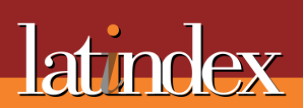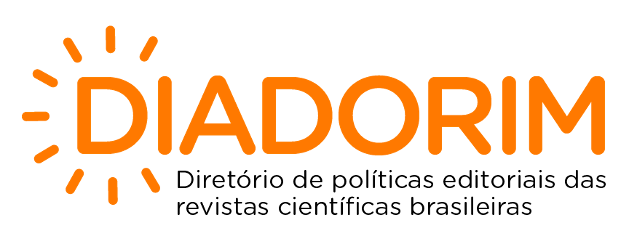Relevance of emotional intelligence in the work routine of the hospitality operational base
DOI:
https://doi.org/10.29147/revhosp.v20.1097Keywords:
Hospitality, emotional intelligence, work routine, hospitality operational base, human resourcesAbstract
In modern psychology, Emotional Intelligence (EI) is transfigured as an essential state of the individual's personal and professional life, since 5 different elements are stimulated in it: self-knowledge, self-control, motivation, empathy and social skills. Following the premise that says that astute are the companies that base their management on the concepts of EI, it became opportune to analyze, through a bibliometric survey, the number of articles that encourage the use of the particularities of EI as a guiding tool to evaluate policies management of the human resources (HR) sector working in lodging facilities. This is a quantitative and qualitative research, under exploratory and descriptive aspects. From the results, a content analysis was carried out, where it was possible to observe that of the 1,102 published articles, only 9 were adequate to the proposal. Of these, the statements about the assertiveness that EI has in the labor and emotional performance of hotel workers and the urgency that the authors give to such restructuring in management models is evident, given the number of employees who already face occupational diseases as a reality.
Downloads
References
Agarwal, P. (2021). Shattered but smiling: human resource management and the wellbeing of hotel employees during covid-19. International Journal of Hospitality Management, 93, p. 1-10. DOI: https://doi.org/10.1016/j.ijhm.2020.102765
Almino, R. H. S. C., Oliveira, S. S., Lima, D. M.; Prado, N. C. C., Mercês, B. M. O., & Silva, R. A. R. (2021). Estresse ocupacional no contexto da COVID-19: análise fundamentada na teoria de neuman. Acta Paulista de Enfermagem, 34, 1-11. DOI: https://doi.org/10.37689/acta-ape/2021AR02655
Alzyoud, A. A. Y., Ahmed, U., Alzgool, M. R. H., & Pahi, M. H. (2019). Leaders’ Emotional Intelligence and Employee Retention: mediation of job satisfaction in the hospitality industry. International Journal of Financial Research, 10(3), 1-18. DOI: https://doi.org/10.5430/ijfr.v10n3p1
Amissah, E. F., Blankson-Stiles-Ocran, S., & Mensah, I. (2021). Emotional labour, emotional exhaustion and job satisfaction in the hospitality industry. Journal ofHospitality And Tourism Insights, 5(5), 805-821. DOI: https://doi.org/10.1108/JHTI-10-2020-0196
Axonify. (2022). Veja por dentro a experiência de trabalho da linha de frente de 2021. https://axonify.com/state-of-frontline-work-experience-2021.
Baas, J., Schotten, M., Plume, A., Côté, G., & Karimi, R. (2020). Scopus as a curated, high-quality bibliometric data source for academic research in quantitative science studies. Quantitative Science Studies, 1(1), 377-386. DOI: https://doi.org/10.1162/qss_a_00019
Barreto, L. M. T. S., Silva, J. R. H., Claudino, A. L., & Araðjo, J. M. S. (2022). Gestão de pessoas no turismo. Revista Brasileira de Pesquisa em Turismo, 16, 2597. DOI: https://doi.org/10.7784/rbtur.v16.2597
Bayighomog, S. W., & Arasli, H. (2022). Reviving employees’ essence of hospitality through spiritual wellbeing, spiritual leadership, and emotional intelligence. Tourism Management, 89, 1-13.
Bayighomog, S. W., & Arasli, H. (2022). Reviving employees’ essence of hospitality through spiritual wellbeing, spiritual leadership, and emotional intelligence. Tourism Management, 89, 104406. DOI: https://doi.org/10.1016/j.tourman.2021.104406
Bulińska-Stangrecka, H., & Bagieńska, A. (2021). The Role of Employee Relations in Shaping Job Satisfaction as an Element Promoting Positive Mental Health at Work in the Era of COVID-19. International Journal of Environmental Research and Public Health, 18(4), 1-18. DOI: https://doi.org/10.3390/ijerph18041903
Burdorf, A., Porru, F., & Rugulies, R. (2020). The COVID-19 (Coronavirus) pandemic: consequences for occupational health. Scandinavian Journal of Work, Environment & Health, 46(3), 229-230. DOI: https://doi.org/10.5271/sjweh.3893
Caldwell, C., & Peters, R. (2018). New employee onboarding: psychological contracts and ethical perspectives. Journal of Management Development, 37(1), 27-39. DOI: https://doi.org/10.1108/JMD-10-2016-0202
Castelli, G. (2016). Gestão Hoteleira. São Paulo: Saraiva.
Choi, H., Mohammad, A. A., & Kim, W. G. (2019). Understanding hotel frontline employees’ emotional intelligence, emotional labor, job stress, coping strategies and burnout. International Journal of Hospitality Management, 82(1), 199-208. DOI: https://doi.org/10.1016/j.ijhm.2019.05.002
Corbu, A., Zuberbühler, M. J. P., & Salanova, M. (2021). Positive Psychology Micro-Coaching Intervention: effects on psychological capital and goal-related self-efficacy. Frontiers in Psychology, 12, 1-14. DOI: https://doi.org/10.3389/fpsyg.2021.566293
Cord, M. M. (2016). Direitos trabalhistas em construção: as lutas pela jornada de oito horas em Pernambuco, 1890-1891. Tempo, 22(39), 175-195. DOI: https://doi.org/10.20509/TEM-1980-542X2016v223908
Creswell, J. W. (2014). Investigação qualitativa e projeto de pesquisa: escolhendo entre cinco abordagens. São Paulo: Penso.
Cui, Y. (2021). The role of emotional intelligence in workplace transparency and open communication. Aggression and Violent Behavior, 101602. DOI: https://doi.org/10.1016/j.avb.2021.101602
Dai, Y., Zhuang, W., Lu, S., & Huan, T. (2020). Work engagement or job burnout? Psychological ownership amongst the employees of international tourist hotels. Tourism Review, 76(6), 1243-1259. DOI: https://doi.org/10.1108/TR-03-2020-0087
Darvishmotevali, M., Altinay, L., & Vita, G. (2018). Emotional intelligence and creative performance: looking through the lens of environmental uncertainty and cultural intelligence. International Journal of Hospitality Management, 73, 44-54. DOI: https://doi.org/10.1016/j.ijhm.2018.01.014
Desfitrina, D., Zulfadhli, Z., & Widarti, W. (2019). Good service strategies affect competitive advantage. International Review of Management and Marketing, 9(6), 135-144. DOI: https://doi.org/10.32479/irmm.8853
Djajasinga, N. D., Sulastri, L., Sudirman, A., Sari, A. L., & Rihardi, E. L. (2021). Practices in Human Resources and Employee Turnover in the Hospitality Industry. Advances in Social Science, Education And Humanities Research, 560, 113-117. DOI: https://doi.org/10.2991/assehr.k.210615.023
Eisenberger, R., Shanock, L. R., & Wen, X. (2020). Perceived Organizational Support: why caring about employees counts. Annual Review of Organizational Psychology and Organizational Behavior, 7(1), 101-124. DOI: https://doi.org/10.1146/annurev-orgpsych-012119-044917
Felício, E. S., & Santos, R. A. (2021). A Psicologia organizacional e seus desdobramentos na Hotelaria. Revista Hospitalidade, 18(3), 179-203. DOI: https://doi.org/10.29147/revhosp.v18i03.996
Gil, A. C. (2021). Como fazer pesquisa qualitativa. Barueri: Atlas.
Goleman, D. (2012). Inteligência emocional: a teoria revolucionária que redefine o que é ser inteligente. Rio de Janeiro: Editora Objetiva.
Gong, Z., Chen, Y., & Wang, Y. (2019). The Influence of Emotional Intelligence on Job Burnout and Job Performance: mediating effect of psychological capital. Frontiers in Psychology, 10, 1-11. DOI: https://doi.org/10.3389/fpsyg.2019.02707
Gordon, S. E., & Shi, X. (2021). The well-being and subjective career success of workaholics: an examination of hospitality managers’ recovery experience. International Journal Of Hospitality Management, 93, 1-10. DOI: https://doi.org/10.1016/j.ijhm.2020.102804
Haider, M., Rasli, A., Akhtar, C. S., Yusoff, R. B. M., Malik, O. M., Aamir, A., Arif, A., Naveed, S., & Tariq, F. (2015). The impact of human resource practices on employee retention in the telecom sector. International Journal of Economics and Financial Issues, 3, 63-69.
Hight, S. K., Gajjar, T., & Okumus, F. (2019). Managers from “Hell” in the hospitality industry: how do hospitality employees profile bad managers?. International Journal of Hospitality Management, 77, 97-107. DOI: https://doi.org/10.1016/j.ijhm.2018.06.018
Jablonska, J.; Trocka-Leszczynska, E. (2019). Reconstruction with a Change of Function – Ergonomics of the Hotel Environment. Advances in Intelligent Systems and Computing, 966, 34-44. DOI: https://doi.org/10.1007/978-3-030-20151-7_4
Jena, L. K., & Goyal, S. (2022). Emotional intelligence and employee innovation: sequential mediating effect of person-group fit and adaptive performance. European Review of Applied Psychology, 72(1), 1-9. DOI: https://doi.org/10.1016/j.erap.2021.100729
Johnson, A., Nguyen, H., Groth, M., & White, L. (2018). Workplace aggression and organisational effectiveness: the mediating role of employee engagement. Australian Journal of Management, 43(4), 614-631. DOI: https://doi.org/10.1177/0312896218768378
Jung, H. S., & Yoon, H. H. (2016). Why is employees’ emotional intelligence important? International Journal of Contemporary Hospitality Management, 28(8), 1649-1675. DOI: https://doi.org/10.1108/IJCHM-10-2014-0509
Lacerda, L. L. L., Santos, J. F. A., & Cunha, C. J. C. A. (2022). Lições aprendidas para gestão de crise no setor de turismo de Florianópolis durante a pandemia Covid-19. Caderno Virtual de Turismo, 22( 2), 28-41. DOI: https://doi.org/10.18472/cvt.22n2.2022.1990
Lee, Y., Mazzei, A., & Kim, J. (2018). Looking for motivational routes for employee-generated innovation: employees' scouting behavior. Journal Of Business Research, 91, 286-294. DOI: https://doi.org/10.1016/j.jbusres.2018.06.022
Lei, C., Hossain, M. S., Mostafiz, M. I., & Khalifa, G. S. A. (2021). Factors determining employee career success in the Chinese hotel industry: a perspective of job-demand resources theory. Journal of Hospitality and Tourism Management, 48, 301-311. DOI: https://doi.org/10.1016/j.jhtm.2021.07.001
Longmire, N. H., & Harrison, D. A. (2018). Seeing their side versus feeling their pain: differential consequences of perspective-taking and empathy at work. Journal of Applied Psychology, 103(8), 894-915. DOI: https://doi.org/10.1037/apl0000307
Mao, Y., He, J., Morrison, A. M., & Coca-Stefaniak, J. A. (2020). Effects of tourism CSR on employee psychological capital in the COVID-19 crisis: from the perspective of conservation of resources theory. Current Issues in Tourism, 24(19), 2716-2734. DOI: https://doi.org/10.1080/13683500.2020.1770706
Mayer, J. D., & Salovey, P. (1993). The intelligence of emotional intelligence. Intelligence, 17(4), 433-442. DOI: https://doi.org/10.1016/0160-2896(93)90010-3
Miao, C., Humphrey, R. H., & Qian, S. (2021). Emotional intelligence and job performance in the hospitality industry: a meta-analytic review. International Journal of Contemporary Hospitality Management, 33(8), 2632-2652. DOI: https://doi.org/10.1108/IJCHM-04-2020-0323
Mirvis, P., & Googins, B. (2018). Engaging Employees as Social Innovators. California Management Review, 60(4), 25-50. DOI: https://doi.org/10.1177/0008125618779062
Moghadam, S. K., Jorfi, H., & Jorfi, S. (2020). Impact of emotional intelligence on performance of employees. Central and Eastern European Online Library, 4, 63-74.
Nguyen, Q., Ladkin, A., & Osman, H. (2021). What helps or hinders the emotional intelligence practice? A study of Vietnamese hotel workers. International Journal of Contemporary Hospitality Management, 34(2), 534-554. DOI: https://doi.org/10.1108/IJCHM-04-2021-0510
Ongsakul, V.; Kajla, T.; Raj, S.; Khoa, T. T.; Ahmed, Z. U. (2022). Changing tourists’ preferences in the hotel industry amid COVID-19 pandemic. Journal of Hospitality and Tourism Technology, 13(2), 295-313. DOI: https://doi.org/10.1108/JHTT-07-2020-0179
Park, K., & Kim, D. (2021). Understanding the relationships among emotional exhaustion, job satisfaction, and emotional intelligence of hotel front desk employees. Asia Pacific Journal of Tourism Research, 26(5), 504-515. DOI: https://doi.org/10.1080/10941665.2021.1874448
Paskin, N. Toward unique identifiers. (1990). Proceedings of TheIeee, 87(7), 1208-1227. DOI: https://doi.org/10.1109/5.771073
Presbitero, A. (2016). How do changes in human resource management practices influence employee engagement? A longitudinal study in a hotel chain in the Philippines. Journal of Human Resources in Hospitality & Tourism, 16(1), 56-70. DOI: https://doi.org/10.1080/15332845.2016.1202061
Proctor, T. (2018). Creative problem solving for managers: developing skills for decision making and innovation. New York: Routledge. DOI: https://doi.org/10.4324/9780429458255
Rahman, M. N. A., Jaffar, M. S. M., Hassan, M. F., Ngali, M. Z., & Pauline, O. (2017). Exposure level of ergonomic risk factors in hotel industries. International Research and Innovation Summi, 226, 1-11. DOI: https://doi.org/10.1088/1757-899X/226/1/012018
Reinaldo, S. S., & Lima, T. B. (2020). Aprendizagem Gerencial de Gestores de uma Rede Hoteleira de João Pessoa/PB, Brasil. Revista Eletrônica de Administração e Turismo, 14(2), 21-42.
Rodrigues, R. S., Garcez, D. C., & Cauchick-Miguel, P. A. (2023). Artigos das engenharias na Web of Science: distribuição nos títulos de núcleo dos autores com vínculo institucional brasileiro. Em Questão, 29, 125151. DOI: https://doi.org/10.1590/1808-5245.29.125151
Said, H., & Tanova, C. (2021). Workplace bullying in the hospitality industry: a hindrance to the employee mindfulness state and a source of emotional exhaustion. International Journal of Hospitality Management, 96, 1-23. DOI: https://doi.org/10.1016/j.ijhm.2021.102961
Saltđk, I. A. (2019). El Efecto del Cinismo Organizacional en la Satisfacción Laboral en la Organización Pública de Turismo: evidencia empírica de Turquía. Anais Brasileiros de Estudos Turísticos - Abet, 9(123), 1-19. DOI: https://doi.org/10.34019/2238-2925.2019.v9.27427
Sant’anna, E. S., Carneiro, J., & Lescura, C. (2021). Quem acolhe aos que acolhem? Trabalho decente como ethos da hospitalidade organizacional na hotelaria. Revista Rosa dos Ventos: Turismo e Hospitalidade, 13(1), 50-70. DOI: https://doi.org/10.18226/21789061.v13i1p50
Santos, E. W. S., & Rodrigues, V. C. (2019). Treinamento e Desenvolvimento Motivacional. Colloquium Socialis, 3(1), 67-72. DOI: https://doi.org/10.5747/cs.2019.v03.n1.s065
Santos, R. A. D., Méxas, M. P., & Meiriño, M. J. (2017). Sustainability and hotel business: criteria for holistic, integrated and participative development. Journal Of Cleaner Production, 142, 217-224. DOI: https://doi.org/10.1016/j.jclepro.2016.04.098
Silva, A. H., & Fossá, M. I. T. (2015). Análise de conteúdo: exemplo de aplicação da técnica para análise de dados qualitativos. Qualitas Revista Eletrônica, 17(1), 1-14. DOI: https://doi.org/10.18391/req.v17i1.2963
Silva, B. (2014). Como os gerentes aprendem? São Paulo: Editora Saraiva.
Silva, E. L., & Menezes, E. M. (2001). Metodologia da pesquisa e elaboração de dissertação. Florianópolis: Laboratório de Ensino a Distância da UFSC.
Silva, M. A. (2020). Aporte Histórico Sobre os Direitos Trabalhistas no Brasil. Ser Social, 22(46), 126-152. DOI: https://doi.org/10.26512/ser_social.v22i46.23516
Siqueira, J. O. (2011). Fundamentos de métodos quantitativos: aplicados em administração, economia e contabilidade atuária. São Paulo: Saraiva.
Smith, M. B., Bryan, L. K., & Vodanovich, S. J. (2012). The counter-intuitive effects of flow on positive leadership and employee attitudes: incorporating positive psychology into the management of organizations. The Psychologist-Manager Journal, 15(3), 174-198. DOI: https://doi.org/10.1080/10887156.2012.701129
Souza, D. L. D., Zambalde, A. L., Mesquita, D. L., Souza, T. A. D., & Silva, N. L. C. D. (2020). A perspectiva dos pesquisadores sobre os desafios da pesquisa no Brasil. Educação e Pesquisa, 46, 1-21. DOI: https://doi.org/10.1590/s1678-4634202046221628
Taherdoost, H. (2016). Validity and Reliability of the Research Instrument; How to Test the Validation of a Questionnaire/Survey in a Research. Ssrn Electronic Journal, 5(3), 1-9. DOI: https://doi.org/10.2139/ssrn.3205040
Tanke, M. L. (2004). Administração de Recursos humanos em Hospitalidade. São Paulo: Thomson.
Vandergeest, P., & Marschke, M. (2019). Modern Slavery and Freedom: exploring contradictions through labour scandals in the Thai Fisheries. Antipode, 52(1), 291-315. DOI: https://doi.org/10.1111/anti.12575
Vatankhah, S., Bouzari, M., & Safavi, H. P. (2020). Unraveling the fuzzy predictors of stress at work. International Journal of Organizational Analysis, 29(2), 277-300. DOI: https://doi.org/10.1108/IJOA-01-2020-2005
Vergara, S. C. (2011). Gestão de Pessoas. São Paulo: Atlas S.a.
Ward-Horner, J., & Sturmey, P. (2012). Component analysis of behavior skills training in functional analysis. Behavioral Interventions, 27(2), 75-92. DOI: https://doi.org/10.1002/bin.1339
Wen, J., Huang, S., & Hou, P. (2019). Emotional intelligence, emotional labor, perceived organizational support, and job satisfaction: a moderated mediation model. International Journal of Hospitality Management, 81, 120-130. DOI: https://doi.org/10.1016/j.ijhm.2019.01.009
Downloads
Published
How to Cite
Issue
Section
License
I herewith declare that I authorize the publication of the enclosed paper by Revista Hospitalidade and it will be labeled as “Open Access” and licensed by the respective authors in accordance with the Creative Commons Attribution (CC-BY) license, without period limitation. The access to the paper will be open and free. access, for an indeterminate period and as unpaid and my collaboration is royalty-free. I declare also that this is an original work that has not been previously published, it has been written by the stated authors, and third-party sources were duly referenced when necessary. I further declare that this work does not infringe the copyright or property right of another and I am aware of publisher´s policy with regards to plagiarism, that will consist in immediate withdrawal of the article. Authors retain the copyright and grant the journal the right of publishing it as original work, i.e. guaranteeing that it has not been previously published, and now it is licensed under “Creative Commons Attribution” License which allows sharing the work with the condition of both authors and journal being duly referenced.











